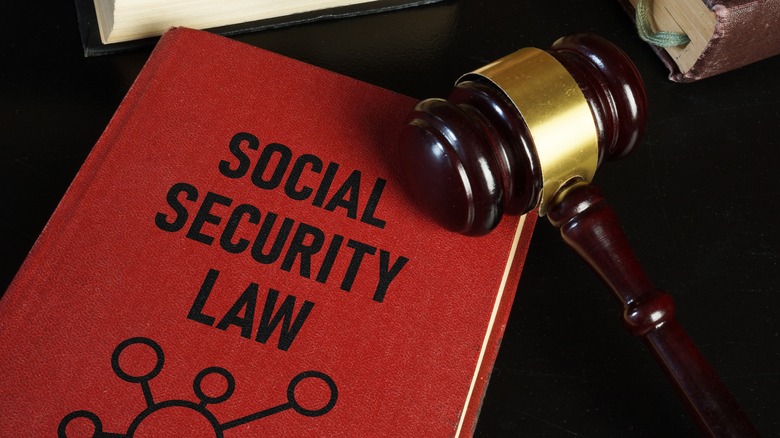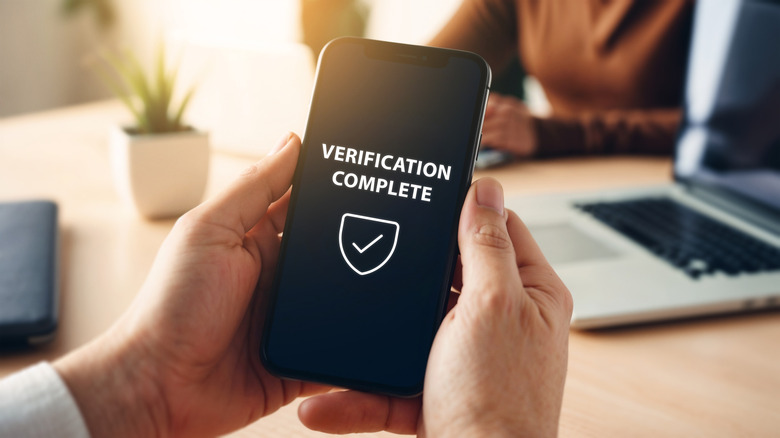4 Big Social Security Changes Retirees Should Expect In April 2025
Over the years, Social Security has been tweaked to fix money shortfalls, cut down on fraud, and adapt to what retirees need. In April 2025, expect some important updates that might impact retirees, from how much money you get to how you get it. First up, the SSA is putting in tougher checks to make sure it's really you when you access your benefits. Then, it's tweaking the math that figures out your monthly checks.
Also, the way money is sent out is getting a refresh. And lastly, the SSA is shaking up the rules on who gets certain benefits, tightening up who qualifies and who doesn't. For retirees, these new changes are pretty important. They might affect when you decide to start taking benefits or how you handle your money to stay within income limits. Plus, with the new focus on security, there's going to be more you can do to protect yourself from fraud. It's all about making sure you can get the most out of Social Security in a way that fits the times. That said, here are four big social security changes every retiree should expect in April 2025.
Implementation of the Social Security Fairness Act
A big part of the April 2025 updates is the roll-out of the Social Security Fairness Act, which does away with two rules that have been pretty unpopular: the Windfall Elimination Provision (WEP) and the Government Pension Offset (GPO). Before this change, these rules cut the Social Security benefits for retirees who had worked in jobs not covered by Social Security taxes — teachers, government workers — or folks in certain public-sector jobs.
Under WEP, if you had a pension from a job that didn't pay into Social Security, the formula recalculated your benefits using a less favorable formula. Similarly, GPO reduced or removed spousal/survivor benefits for those receiving government pensions. With the Social Security Fairness Act eliminating both WEP and GPO, retirees can now receive their full benefits based on their actual work history and contributions, correcting what many saw as an unfair penalty.
Retirees who previously saw reduced benefits may also qualify for retroactive adjustments, though specifics depend on individual circumstances and SSA guidance. For example, if a federal employee retired in January 2024 with a monthly pension of $3,000 and their Social Security was reduced by $900 a month because of WEP, they could receive a lump sum covering the reductions from when they retired until when the repeal kicks in. As the retroactive payments begin in April 2025, they would get back around 15 months of benefits they missed out on, which would add up to about $13,500.
Enhanced identity verification
Under the new updates, if you're a retiree managing your Social Security benefits online, you'll need to go through a more detailed process to prove it's really you. This means submitting scans of your government-issued ID, going through biometric checks (like fingerprinting or facial recognition), or answering questions only you would know the answers to. If you need to make changes to how you receive your benefits, like updating your direct deposit info, you'll have to go through similar security steps.
Fraud prevention is a priority. The Social Security Administration has seen a 30% increase in identity theft-related claims from 2020 to 2023, which has really pushed them to beef up security. But the SSA is also being mindful not to make things too hard for people who might need extra help. For instance, those who get Supplemental Security Income (SSI), disability benefits, or Medicare won't be forced to meet new in-person requirements just to update their payment methods.
To help with the new changes, the SSA will introduce tutorials and expand customer service support. Still, as a retiree, you should keep an eye on the SSA website or look out for notices in the mail to make sure you don't miss any important deadlines. You should also stay away from some common Social Security myths to save more.
Transition to electronic payments
By September 30, 2025, Social Security will fully phase out paper checks. All benefits will need to be received through direct deposit or a Direct Express Debit Mastercard, issued by the SSA. For those without bank accounts, the SSA offers a prepaid debit card option. This card allows fee-free ATM withdrawals at over 60,000 locations nationwide. But be aware, some actions like using non-network ATMs or checking your balance might come with fees, as outlined in the Direct Express fee schedule. Retirees who haven't switched by the deadline, might face delays in receiving their payments. However, there will be a grace period to help people adjust.
A few people are exempted from these rules, particularly seniors and those with certain disabilities. A person born on or before May 1, 1921, can still receive their payments by check without needing to switch. Also, individuals with mental impairments that make handling electronic payments challenging are exempted, as long as they don't have a representative payee managing their affairs. To qualify for these exemptions, eligible individuals need to apply directly to the Treasury. They must also complete a certification process, which includes signing a document in front of a notary public and swearing under penalty of perjury that they meet the criteria for an exemption.
Adjustments to payment schedules
In 2025, retirees will need to prepare for slight shifts in Social Security payment dates due to calendar quirks, including weekends and federal holidays. While this happens every so often, it's good to know about it in advance, especially if you're someone who counts on those checks to manage monthly expenses. How it goes is Social Security payments are scheduled for Wednesdays, and when exactly you get yours depends on your birthday. If you're born between the 1st and 10th, expect your money on the second Wednesday of the month. Birthdays from the 11th to the 20th get their benefits on the third Wednesday, and those born after the 20th, on the fourth Wednesday.
Now if your payment day lands on a holiday or weekend, you'll get your money a bit earlier, the last business day before. For example, let's say the third Wednesday of June 2025 falls on Juneteenth (observed on the 19th). Instead of Wednesday, payments for those mid-month birthdays would come through on Tuesday, June 18. This tweak means the gap between your June and July payments might be shorter than usual, so planning your monthly budget might need a bit more attention. Supplemental Security Income (SSI) recipients face similar adjustments. SSI payments normally arrive on the 1st of each month, but if that date falls on a weekend or holiday, they're issued the prior business day.




